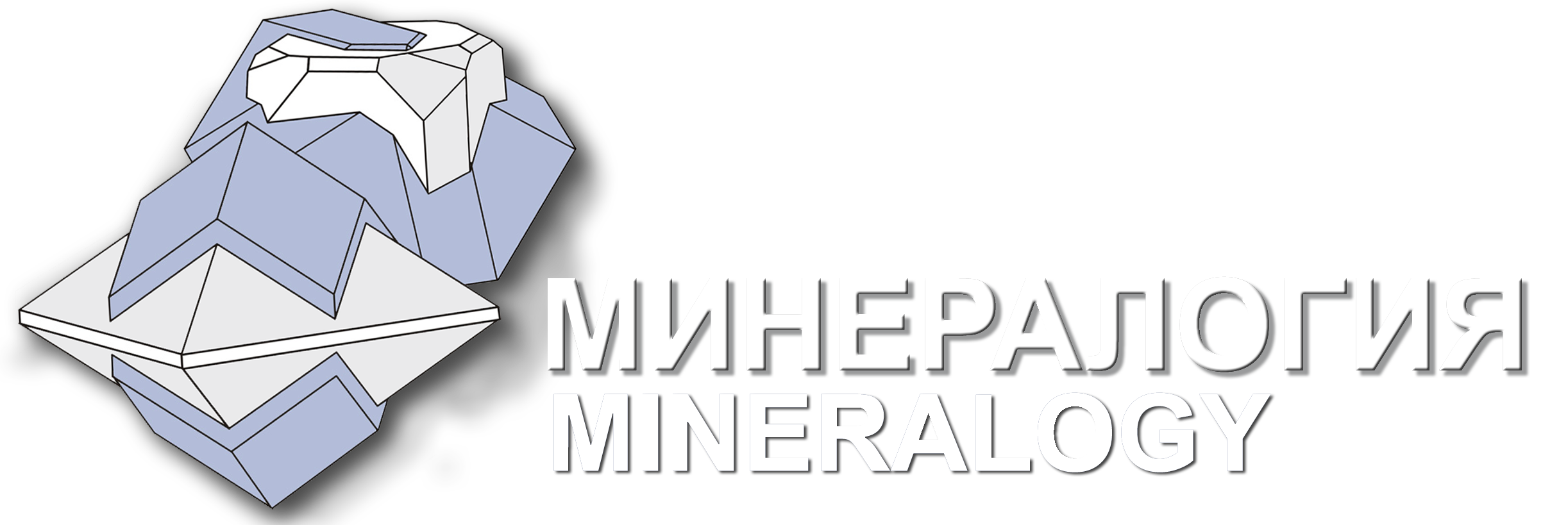Editorial policy
Open-access statement
Confidentiality policy
Plagiarism policy
Author fees and funding
Data retention and archiving policy
Privacy policy
License agreement and copyright policy
The legal basis for ensuring publication ethics in Mineralogy is provided by international standards, including the provisions adopted by the 2nd World Conference on Integrity in Scientific Research (Singapore, 22–24 July 2010); and the regulations developed by the Committee on Publication Ethics (COPE) and norms of Chapter 70 “Copyright” of the Civil Code of the Russian Federation.
Materials in Mineralogy are available under license Creative Commons Attribution International 4.0 CC-BY, which allows unlimited use of the work, subject to attribution. All users can read, download, copy, distribute, print, search, or link to the full text of the papers published in Mineralogy and guarantee the original authors the right to be properly acknowledged and cited.
Open-access statement
Mineralogy is an open access journal, which means that all content is freely available without charge to the user or his/her institution. Users are allowed to read, download, copy, distribute, print, search, or link to the full texts of the articles, or use them for any other lawful purpose, without asking prior permission from the publisher or the author. This is in accordance with the Budapest Open Access Initiative (BOAI) definition of open access.
Confidentiality policy
All manuscripts submitted to Mineralogy are confidential prior to their publication. The editors and reviewers are not allowed to share or discuss any details of the manuscripts under consideration with third parties outside of the editorial or review process. Confidential data or ideas obtained through editorial or peer-review process cannot be distributed in any format or used for personal advantage.
Plagiarism policy
Mineralogy publishes only original articles. Submitting the manuscript, the authors should ensure that it has not been published before, has not been submitted to other journal and all data taken from other works (of both the author of the submitted manuscript and other authors) have been appropriately cited or quoted.
The submitted manuscripts in Russian are checked for plagiarism using an Antiplagiat system (https://antiplagiat.ru/about/). The manuscripts submitted in English are checked using Google Scholar (https://scholar.google.ru/scholar?start=10&q=2313-545X&hl=ru&as_sdt=0,5).
Author fees and funding
Submission, peer-review process, editing and publication of articles in Mineralogy are free of charge for all authors. Publishing of Mineralogy is supported by the publisher’s funds. No rewards are envisaged for the authors.
Data retention and archiving policy
Information about all articles published in Mineralogy including PDF versions of all articles and full issues of the Journal can be found on official websites of the Journal (https://journal.mineralogy.ru), Scientific Electronic Library (eLibrary.ru) (https://www.elibrary.ru/title_about_new.asp?id=54749), and Scientific Open Access Library CyberLeninka (https://cyberleninka.ru/search?q=2313-545X&page=1).
According to the Federal Law № 2124-1 of December 27, 1991 (in the version of 14.07.2022) “About Mass Media”, the mandatory copies of new issues of Mineralogy are downloaded within 7 days after the publication to web-sites of The Information Telegraph Agency of Russia (ITAR-TASS, https://online.bookchamber.ru/) and The Russian State Library (https://oek.rsl.ru/).
Authors can store their articles published in Mineralogy on personal web-sites or publish them in any suitable databases indicating the title and the issue of Mineralogy, where the article was initially published. The authors are encouraged to use the publisher’s PDF version of the article or provide a link from the deposited version to the URL/DOI of the published article on the official website of Mineralogy.
Privacy policy
Personal information about the authors (first name, surname, affiliated organization and its address, e-mail), which is included in published articles, become available to everybody. Authors provide consent to the processing of the aforementioned types of personal data, when they submit their manuscripts and related materials for publication. Personal data are published for correct accounting and citation of the published articles and in order to ensure proper interactions between the journal’s authors and the other members of scientific community.
Additional personal information (e.g., phone numbers and additional e-mails) received from the authors is only used to keep contact between the author and the editorial board during the preparation of the manuscript to publishing. The editorial board does not share this personal information with third parties outside of the editorial process.
